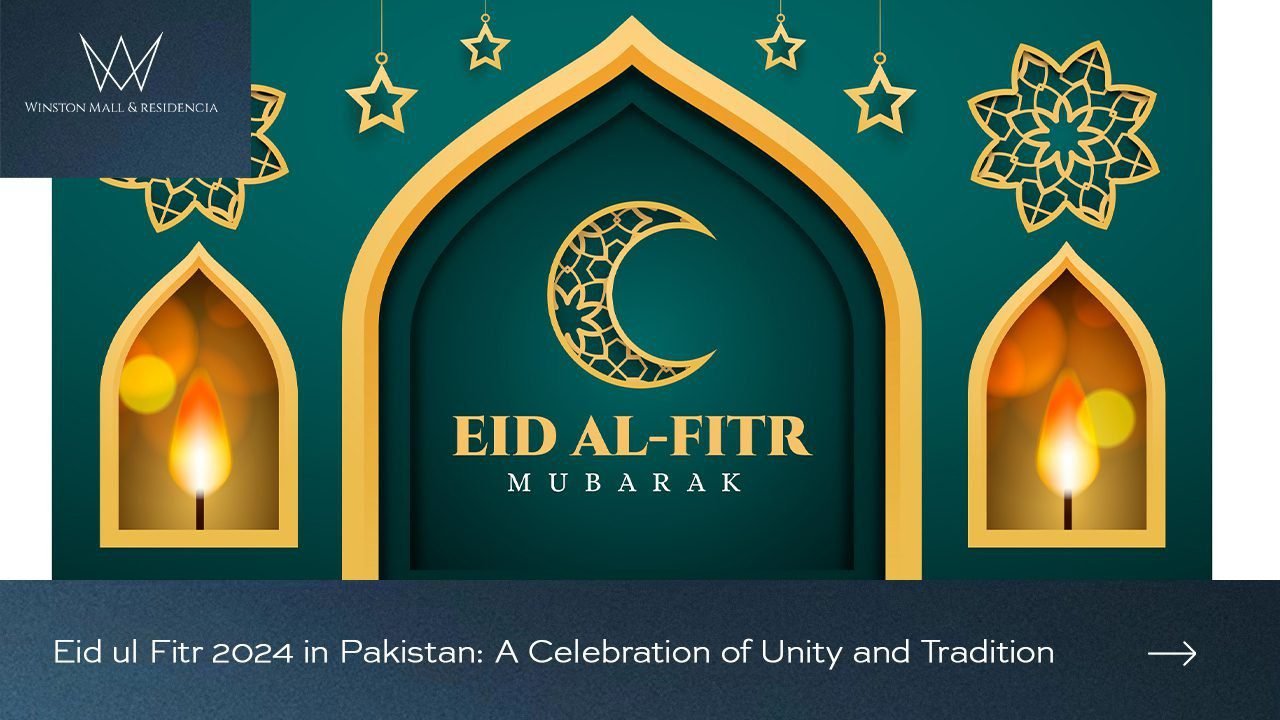As the holy month of Ramadan comes to an end, the air in Pakistan is filled with anticipation and excitement for the joyous occasion of Eid ul Fitr. This festival, marking the breaking of the fast, is a time of togetherness, spirituality, and vibrant celebrations that bring communities together in a spirit of unity and joy.
Chand Raat: The Night of Anticipation
The festivities begin on the eve of Eid, known as Chand Raat (Night of the Moon), when families eagerly await the sighting of the new moon. The streets are illuminated with twinkling lights, and markets bustling with people shopping for new clothes, jewelry, and delectable sweets. This night sets the stage for the grand celebrations to come.
Eid Day: A Time for Prayers and Reunions
As the sun rises on Eid day, the melodious call to prayer echoes through the air, summoning the faithful to gather at mosques for the special Eid prayers. After the prayers, families embrace each other with warm hugs and wishes of “Eid Mubarak,” filling the atmosphere with love and happiness.
The day continues with traditional feasts, where families gather around tables laden with delicacies like Sheer Khurma, a sweet vermicelli pudding, and Seviyan, a fragrant noodle dish. It’s a time for catching up with loved ones, exchanging gifts, and showering children with attention and presents.
Traditions and Cultural Expressions
One of the most captivating aspects of Eid ul Fitr in Pakistan is the vibrant display of traditional attire. Women and children adorn themselves in colorful dresses, intricate embroidery, and henna-adorned hands, adding a touch of elegance to the festivities. The air is filled with the scent of rose water and the laughter of children playing with their new toys.
Markets and bazaars come alive with stalls selling delectable treats, intricate handicrafts, and traditional henna designs. The sounds of music and laughter echo through the streets as families and friends exchange visits, strengthening the bonds of community and kinship.
Embracing Modernity, Upholding Traditions
While the essence of Eid ul Fitr remains deeply rooted in tradition, modern celebrations have found their way into the festivities. Cities across Pakistan organize grand events, concerts, and fireworks displays, adding a contemporary flair to the age-old celebrations.
Families also embrace the spirit of charity and giving, distributing Zakat al-Fitr (obligatory charity) to those in need, ensuring that the joy of Eid is shared with all members of society.
Read More: Eid ul Adha Date in Pakistan 2024
A Celebration of Unity and Togetherness
Eid ul Fitr in Pakistan is a true reflection of the country’s rich cultural heritage and the unity that transcends religious and cultural boundaries. It is a time when differences are set aside, and people come together to celebrate the blessings of faith, family, and community.
As the festivities draw to a close after three days of celebration, the spirit of Eid ul Fitr lingers on, reminding everyone of the importance of unity, compassion, and the joy of shared experiences that bind people together in a harmonious tapestry of tradition and modernity.
Eid-ul-Fitr 2024: When will Shawwal moon be sighted in Pakistan?
The Pakistan Meteorological Department (PMD) has predicted that the new moon of Shawwal, marking the end of Ramadan, will be born on April 8 at 11:21 pm. According to the PMD, the crescent moon will be between 19 and 20 hours old around sunset on April 9 and should be visible for over 50 minutes after sundown.
If the PMD’s forecast is accurate, the first day of Eid-ul-Fitr will fall on April 10 in Pakistan. The department stated that most parts of the country are expected to have clear skies on April 9, facilitating moon sighting, although northern areas may experience cloudy conditions.
The crescent moon that signaled the start of Ramadan was sighted on March 11, meaning that Pakistanis will have observed 29 days of fasting if Eid is celebrated on April 10.
Eid-ul-Fitr is a joyous occasion celebrated by Muslims worldwide after the culmination of the holy month of Ramadan. Ramadan is the ninth month of the Islamic lunar calendar and teaches patience, self-control, charity, and welfare. The Islamic months last 29 or 30 days, with the beginning and end determined by the sighting of the crescent moon, causing Ramadan to fall at a different time each year according to the Gregorian calendar.



